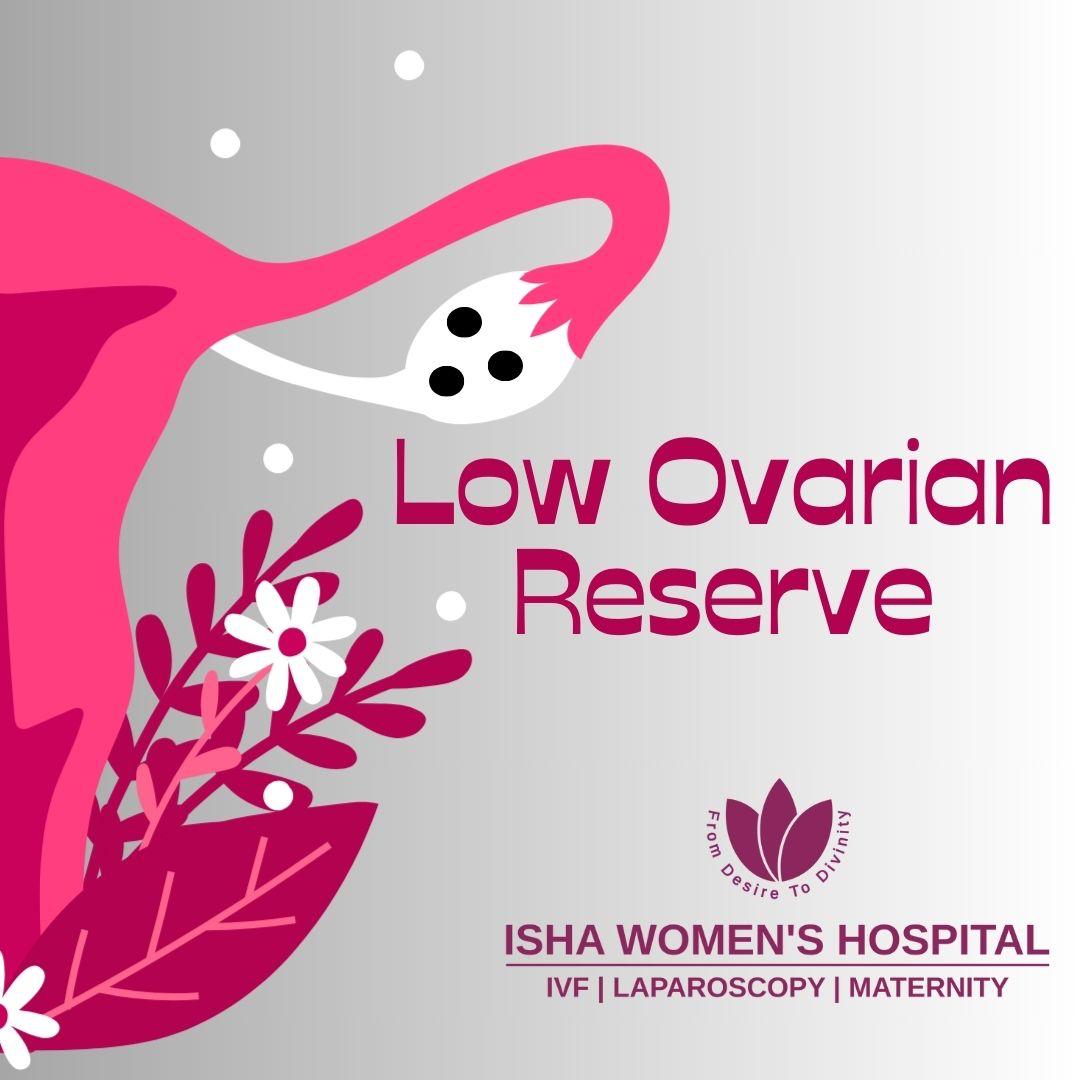Low Ovarian Reserve

What is a Low Ovarian Reserve?
In addition to a reduced egg count, the quality of the eggs also declines, which is critical for achieving a healthy pregnancy. This condition is particularly concerning for women trying to conceive, as both the quantity and quality of eggs play vital roles in successful fertilization and implantation.
Signs of Low Ovarian Reserve
- Irregular or Short Menstrual Cycles: Cycles shorter than 21 days or inconsistent periods can be an early sign.
- Difficulty Conceiving: Struggling to conceive despite trying for 6–12 months may point to reduced ovarian function.
- Hormonal Changes: Elevated follicle-stimulating hormone (FSH) or low anti-Müllerian hormone (AMH) levels detected during fertility tests.
- Decreased Menstrual Flow: Lighter or scantier periods than earlier cycles.
- Early Menopausal Symptoms: Experiencing hot flashes, night sweats, irritability, or mood swings at a younger age.
- Family History of Early Menopause: Previous family history of early menopause or infertility indicates the possibility of low ovarian reserve as a hereditary sign.
- Pelvic Pain or History of Medical Conditions: Endometriosis or ovarian surgeries that may have affected ovarian health.
Causes of Low Ovarian Reserve
- Ageing: The most common cause, as egg quantity and quality naturally decline with age, especially after 35.
- Genetic Factors: Conditions like Turner syndrome, fragile X premutation, or a family history of early menopause.
- Medical Treatments: Chemotherapy, radiation, or ovarian surgeries can damage ovarian tissue.
- Endometriosis: A condition that can affect ovarian health and reduce the number of viable eggs.
- Lifestyle Factors: Smoking, obesity, and exposure to environmental toxins can accelerate egg loss.
- Idiopathic Causes: In some cases, the cause remains unknown, but the impact on fertility is evident.
Diagnosis:
Accurate diagnosis of low ovarian reserve involves a combination of medical history, physical exams, and specialized tests:
- Medical History: Evaluation of menstrual cycle patterns, family history of early menopause, or any prior surgeries or treatments affecting the ovaries.
- Blood Tests:
- Anti-Müllerian Hormone (AMH): Low levels indicate reduced ovarian reserve.
- Follicle-Stimulating Hormone (FSH): Elevated FSH levels on day 3 of the menstrual cycle suggest diminished ovarian function.
- Antral Follicle Count (AFC): A transvaginal ultrasound counts the small follicles in the ovaries, reflecting the number of remaining eggs.
- Ovarian Volume: Ultrasound measurement of the size of the ovaries, as smaller ovaries may correlate with reduced reserve.
Treatment Options
- Lifestyle Modifications: Adopting a healthy lifestyle, including balanced nutrition and stress management, can enhance overall fertility.
- In Vitro Fertilization (IVF): IVF remains one of the most effective treatments, especially when combined with advanced techniques like ICSI (Intracytoplasmic Sperm Injection).
- Fertility Preservation: Women diagnosed early can opt for egg freezing to preserve their fertility for the future.
Conclusion
If you suspect low ovarian reserve or are facing difficulties conceiving, don’t wait to seek expert advice.
Contact Isha Women’s Hospital to schedule a consultation and begin your journey toward parenthood.
Frequently Asked Questions (FAQs)
Ans - It means the quantity and quality of a woman’s eggs are lower than expected for her age.
2. What causes it?
Ans - Aging, genetics, surgeries, chemotherapy, endometriosis, or unknown factors.
3. What are the symptoms?
Ans - Often no symptoms, but may include irregular periods or difficulty conceiving.
4. How is it diagnosed?
Ans - With tests like AMH levels, AFC (Antral Follicle Count), and FSH blood test.
5. Can it be treated?
Ans - Yes—IVF, egg stimulation protocols, or egg donation can help improve pregnancy chances.
